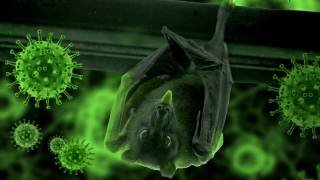Ophthalmologists See New Coronavirus Treatment Guidelines

The American Academy of Ophthalmology is sharing important ophthalmology-specific information related to the novel coronavirus SARS-CoV-2.
This highly contagious virus can cause a severe respiratory disease known as COVID-19.
As of April 12, 2020, the following practice guidelines have been updated in the past 48 hours by the Academy:
- For diagnostic eye drops required for ophthalmic examinations, multidose eye drop containers should be kept in cabinets or other closed spaces away from anywhere that could become contaminated during a patient encounter. As should always be the case, care must be taken not to touch the eyelashes or ocular surface with the tip of the eye drop bottle, and the examiner’s hands should be disinfected immediately after touching the patient’s face.
- Several reports suggest that SARS-CoV-2 can cause a mild follicular conjunctivitis otherwise indistinguishable from other viral causes, and possibly be transmitted by aerosol contact with conjunctiva. However, at this point in the COVID-19 pandemic, practically any patient seen by an ophthalmologist could be infected with SARS-CoV-2, regardless of risk factors, indication for a visit or geographic location.
- SARS-CoV-2 is very likely susceptible to the same alcohol- and bleach-based disinfectants that ophthalmologists commonly use to disinfect ophthalmic instruments and office furniture. To prevent SARS-CoV-2 transmission, the same disinfection practices already used to prevent the office-based spread of other viral pathogens are recommended before and after every patient encounter.
- If the office setup permits, patients who come to an appointment should be asked prior to entering the waiting room about fever and respiratory illness and whether they or a family member have had contact with another person with confirmed COVID-19 in the past 2 to 14 days. If they answer yes to either question, they should be sent home and told to speak to their primary care physician.
- The American Academy of Ophthalmology has no opinion on the use of chloroquine or hydroxychloroquine in COVID-19 disease patients. These drugs are oral agents approved for malaria and autoimmune disorders, respectively, and are also under-study to evaluate their safety and efficacy in the treatment of COVID-19.
The Academy and federal officials strongly recommend protection for the mouth, nose, and eyes when caring for patients potentially infected with SARS-CoV-2.
The American Academy of Ophthalmology is the world’s largest association of eye physicians and surgeons. A global community of 32,000 medical doctors, we protect sight and empower lives by setting the standards for ophthalmic education and advocating for our patients and the public.
SARS-CoV-2 pandemic news published by Coronavirus Today.








.jpg)

.jpg)




.jpg)







.jpg)

